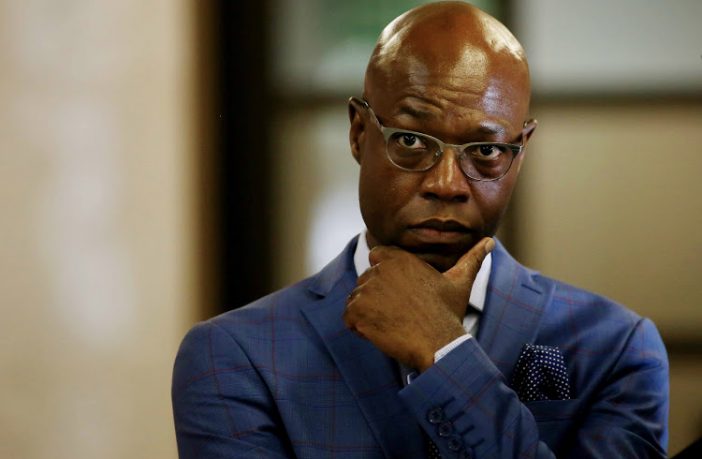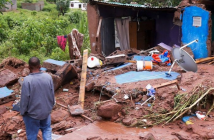In South Africa, the Judicial Commission of Inquiry into Allegations of State Capture – commonly known as the Zondo Commission – has again turned its attention to the country’s state-owned power utility, Eskom, but appears to have uncovered more mystery than fact.
The latest testimony revelations have at best been murky but place coal squarely at the heart of the utility’s scandals. According to Eskom’s former chief executive, Matshela Koko, between 2012 and 2014 the then deputy president of South Africa and chair of Optimum coal mining company, President Cyril Ramaphosa, pushed the utility to dismiss him.
Related news: Koko – I will stop load shedding in Zimbabwe in 12 months
The alleged motivation behind Ramaphosa’s interference to have Koko fired was an outstanding R1.4 billion penalty fee due to Eskom by Optimum, which Koko had been pushing to recover.
Indicating that, to date, Optimum has not explained why the penalty fee was unpaid, Koko bemoaned his treatment: “Unconsciously or consciously, your investigators are following people and not the evidence. If they were, different people would be sitting where I am sitting.”
Related news: Koko: the energy clown’s days are numbered
Does he have a point, or is this deflecting from his hand in Eskom’s decline?
At least the testimony by Eskom’s former board chair, Ben Ngubane, gave insight into the penalties owed by Optimum.
“There was a period when the export coal price was rocketing in dollars, and every coal producer was trying to get into the international market. That time, Optimum coal mine was washing its coal, taking out the best for export and giving rubbish to Eskom. Even that rubbish was below the coal supplier agreement stipulated. This is when the issue of penalties started coming in,” Ngubane explained.
Following the trend of accusing the Zondo Commission of unfairness, Eskom’s former head of legal and compliance, Suzanne Daniels, expressed concern that the Commission was not being fair towards her and treating other witnesses with kid gloves.
In her defence, Daniels was a key State Capture whistle-blower during a parliamentary enquiry into Eskom in late 2017.
At the time, Daniels’ revelations helped connect the scandal around the Gupta ‘heist’ of Eskom, the events that led to R1.6-billion in payments to consulting firm McKinsey, and pre-payment for coal that helped fund the Gupta purchase of Optimum Coal Mine.
A few months after blowing the whistle, Eskom fired Daniels over her role in those same transactions.
Today marks day 320 of hearings for 2020, giving you an idea of the extent to which this administrative corruption and state capture run. The Commission will continue to hear Eskom related evidence from the former Eskom board member and acting CEO, Zithembe Khoza, and former director Viroshini Naidoo.
Was there anything that could have changed our current course of what is undoubtedly an extremely costly affair?
Largely ignored, the tools at our disposal would have stalled clandestine networks from clustering around state institutions, accumulating unchecked power.
These tools are common, and frankly expected, within private corporations such as the King Report on Corporate Governance and shareholder’s compact made public and regularly updated. As a state-owned utility, Eskom has additional tools, such as the Public Finance Management Act enabling accounting officers to have clear lines of accountability.
Eskom and those responsible for its precarious financial position, spiralling capital expenditure and operation costs, increased electricity prices and the other effects of state capture at the power utility remain – broadly – unaccountable to the people of South Africa.
Zondo Commission: A brief history…
In November 2016, South Africa’s former Public Protector, Thuli Madonsela, released the State of Capture report. Much of the argument centred on events at Eskom, specifically former president Jacob Zuma and the Gupta families’ (and their associates) involvement in the appointment and removal of state ministers and board members.
This affair extended to various conflicts of interest and information sharing to the benefit of Zuma and Gupta aligned interests, the special treatment of the Zuma and Gupta families and associates to the prejudice of other parties, and incidents of bribery, fraud, and corruption.
Further to this, the Parliamentary Portfolio Committee on Public Enterprises’ inquiry into allegations of state capture at Eskom (Eskom Inquiry), showed extensive evidence and important testimony to shed light on state capture within and beyond Eskom.
Over 2,000 documents handed from the Inquiry to the Zondo Commission has as yet not held enough weight to bring anyone to book
Author: Nicolette Pombo-van Zyl
Nicolette has been working in the African power, energy and water sectors since 2011, first with African Utility Week and now as the Editor of ESI Africa. She is also an Advisory Board member of the Global and African Power & Energy Elites publications. With her passion for sustainable business and placing African countries on the international stage, Nicolette takes a keen interest in current affairs and technology trends.
This article was originally published on ESI Africa and is republished with permission with minor editorial changes.















